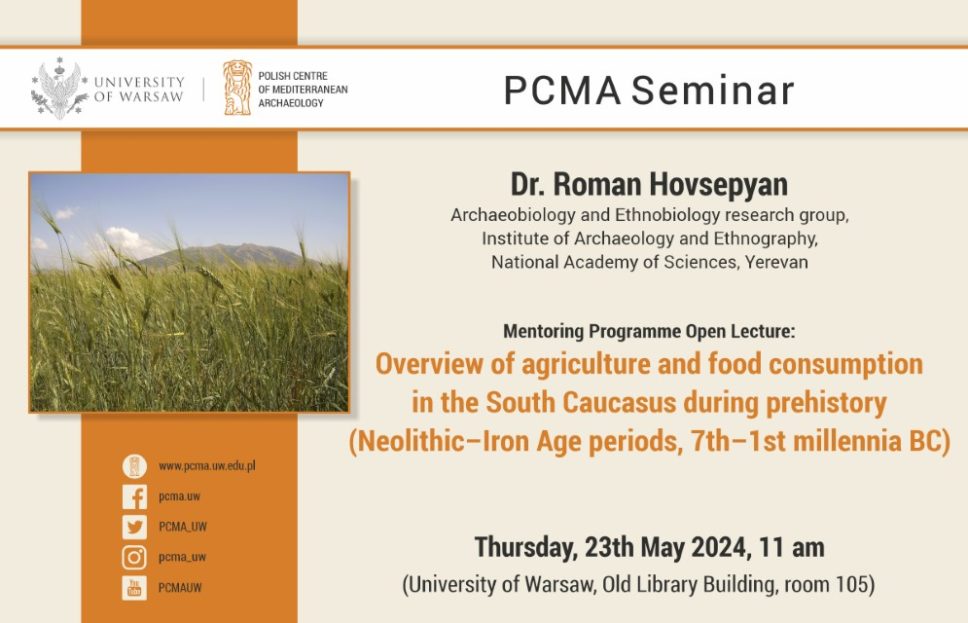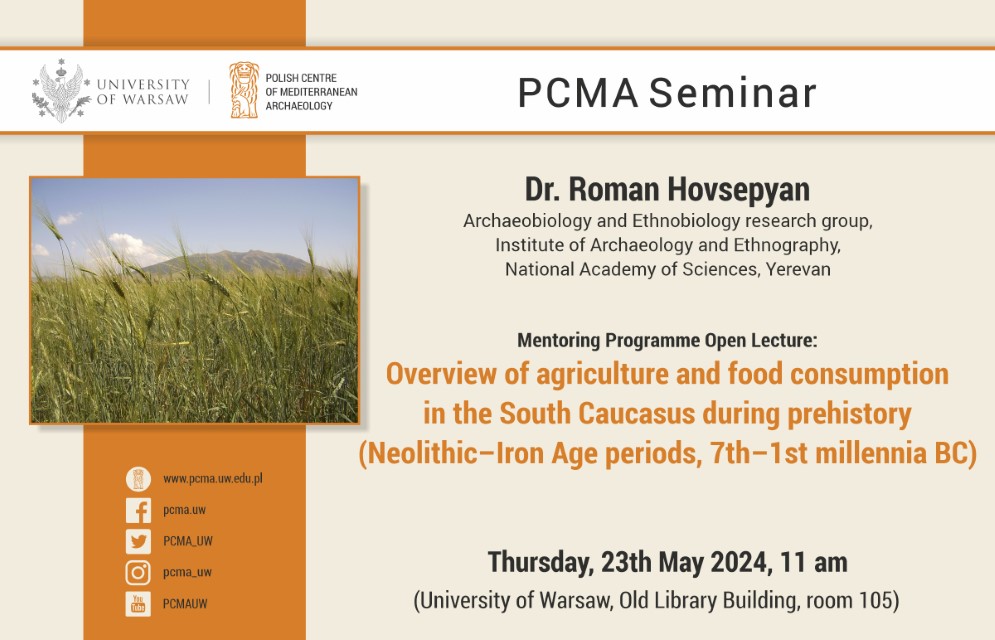W Centrum Archeologii Śródziemnomorskiej Uniwersytetu Warszawskiego będzie gościć dr Roman Hovsepyan, archeobotanik i etnobotanik z Armeńskiej Akademii Nauk. Przyjedzie do Warszawy w ramach programu IDUB „Mentor” na zaproszenie dr. Mateusza Iskry. Podczas swojego pobytu, dr Hovsepyan wygłosi wykład otwarty na Uniwersytecie Warszawskim:
Dr Roman Hovsepyan jest kierownikiem grupy badawczej bioarcheologii i etnobiologii w Instytucie Archeologii i Etnografii Armeńskiej Akademii Nauk w Erywaniu. Główne zainteresowania badawcze dr. Hovsepyana to dawna ekonomia i środowisko Kaukazu Południowego, Bliskiego Wschodu i południowo-wschodniej Europy oraz wykorzystanie dziko rosnących roślin przez Ormian, Jezydów, Kurdów i Mołokanów (Rosjan kaukaskich).
Wykład: „Overview of agriculture and food consumption in the South Caucasus during prehistory (Neolithic – Iron Age periods, 7th–1st millennia BC)” odbędzie się we czwartek, 23 maja w Budynku Starego BUW-u, w godzinach 11.00-12.00 w sali 105.
Abstrakt: „Agriculture has had its ups and downs in the prehistory of the South Caucasus. In the beginning, upon its establishment in the 6th millennium B.C., the Late Neolithic period, it was diverse involving the cultivation of various cereals, pulses, and oil plants. The situation started to change in the Chalcolithic period and, starting from the Early Bronze Age period (the Kura-Araxes culture), agriculture depending almost exclusively on cereal cultivation was practiced in the South Caucasus. This „cerealized” agriculture continued for more than two and a half millennia (from the Early Bronze Age to the Early Iron Age). Then, in the Middle Iron Age, agriculture again became diverse in the South Caucasus.
Global environmental changes at the beginning of the Early Bronze Age may have contributed to transforming the agriculture of the South Caucasus into the cultivation of a few hardy cereals. However, it seems more likely that anthropogenic factors played a decisive role, because pulses and oil-plants could have been grown along with cereals in the same conditions in foothills and plains, but they were not.”
Po wykładzie odbędą się Polsko-armeńskie warsztaty: „Pottery production, distribution and use during the Iron Age in Armenia”
Celem Działania „Program Mentor” I.1.1/IV.1.1 w ramach IDUB (Inicjatywa Doskonałości – Uczelnia Badawcza) jest zwiększenie szans badaczy z Uniwersytetu Warszawskiego na włączenie w prace zespołów realizujących przełomowe dla nauki projekty badawcze, poprzez umożliwienie budowania międzynarodowej sieci kontaktów z naukowcami z uczelni z innych krajów, w tym wybitnymi badaczami cieszącymi się światowym autorytetem.


